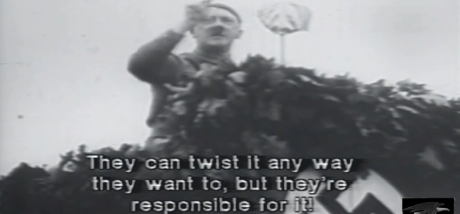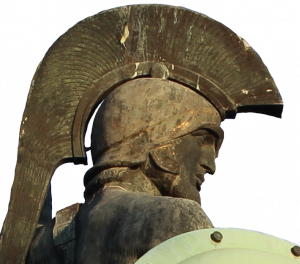Council on Foreign Relations – går emot europeiska intressen
REPORTAGE • Genom att kontrollera underrättelsetjänster, media och finansvärlden påbörjade CFR skapandet av vad vi kallar för globalism idag.
Det nationalsocialistiska Tyskland hade som mål att vara självförsörjande, vilket var ett finansiellt hot mot bankirernas internationella finanspolitik. Efter att Tyskland hade blivit besegrat under andra världskriget stod nu flera ekonomiska system mot varandra. USA började arbeta för att förändra Storbritannien och Frankrikes finansiella möjligheter genom att sära på nationerna och deras kolonier, precis som de själva hade gjort för Tyskland efter första världskriget. Detta för att minska Storbritannien och Frankrikes förmåga att föra en liknande politik som nationalsocialisterna hade gjort. Sovjet ville i sin tur ta bort kolonierna från Storbritannien och Frankrike för sin egen ekonomiska (kommunistiska) politiks skull. Förutom konflikten mellan det kapitalistiska väst och kommunistiska öst så var det en konflikt inom den kapitalistiska alliansen.
The popularization of the theoretical basis for a tough United States policy toward the Soviet Union can also be traced to the CFR. Council member George F. Kennan, who developed the famous "containment" doctrine, addressed the Council on the topic in January 1947 and published his celebrated article, "The Sources of Soviet Conduct," in Foreign Affairs (July 1947). At the time, Kennan was the head of the Department of State's Policy Planning Committee. The American government had recently adopted the containment doctrine, which held that the Soviets would try to pursue unlimited expansion, but that they could be stopped with a firm and vigilant American policy. Containment involved American aid for the economic reconstruction of Europe along lines favorable to America's largest corporations.
This quickly became one of the most important focuses of the Council's study program between 1945 and 1951. One group's work had a direct impact on American foreign policy. In 1946-1947 lawyer Charles M. Spofford headed a group, with banker David Rockefeller as secretary, on Reconstruction in Western Europe; in 1947-1948 that body was retitled the Marshall Plan. The Council's annual report for 1948 explained that even before Secretary of State George C. Marshall had made his aid to Europe proposal in June 1947, the Spofford group had "uncovered" the necessity for aid to Europe and "helped explain the needs for the Marshall Plan and indicated some of the problems it would present for American policy.
Imperial Brain Trust: The Council on Foreign Relations and United States Foreign Policy. Sidor 34-35.
Genom Marshallplanen kunde USA styra flera europeiska länder i en önskvärd riktning för dem. Desmond Dinans bok ”Europe recast: a history of the European Union” förklarar detaljerat de amerikanska politikerna som hade åsikter om hur Europa skulle formas efter andra världskriget. Med hjälp av Laurence Shoups böcker där äldre medlemslistor publicerats så går det att se att flera av dessa var medlemmar i CFR. General Dwight D. Eisenhower blev vald till president 1952, han var medlem i CFR och han var skolad i CFR:s studiemiljöer.
It was in reference to this study group that another member commented to journalist Joseph Kraft: "Whatever General Eisenhower knows about economics, he learned at the study group meetings."
Imperial Brain Trust: The Council on Foreign Relations and United States Foreign Policy. Sida 35.
Efter valet kontaktade utrikesdepartementet CFR och bad dem om hjälp när det kom till att hamra fram en ny policy mot Sovjet i utlandet. CFR bestämde sig för att expandera och gjorde David Rockefeller till vicepresident tillsammans med juden Frank Altschul. George S. Franklin Jr som var ingift med Rockefeller blev den högsta chefen i organisationen.
The study group on United States-Soviet relations, which Wall Street lawyer and banker John J. McCloy chaired and which had Henry L. Roberts, director of the Russian Institute at Columbia University as research director, enjoyed the services of a staff of six financed by a Ford Foundation grant. The Council's 1953 report noted that it was "one of the most ambitious projects the Council has ever undertaken." The focus was "to examine Soviet capabilities, and the influence of developments in new weapons on the strategic assumptions underlying American foreign policy and, in the light of these discussions . . . consider the problems of our relations with the Soviet Union in all the vital areas of the world as well as over-all." The study group included, in addition to Council chairman McCloy, president Wriston, vice-president Altschul, John D. Rockefeller III, executive directors Mallory and Franklin, and four other Council directors, as well as two senior staff members of the Council, Philip E. Mosely and William Diebold, Jr. Observers were present from the CIA, the army, the State Department, and the air force.
Imperial Brain Trust: The Council on Foreign Relations and United States Foreign Policy. Sidor 39-40.
Den världsberömda juden Henry Kissinger blev själv skolad av CFR och blev sedan medlem.
The resulting book, Nuclear Weapons and Foreign Policy, which Kissinger wrote, ran for many weeks on the best-seller list and, commented the Council's 1956 report, "more important, it has been read and discussed by the highest officials in the legislative and executive branches of our Government. . . . This book is a prime example of the pioneering policy work that is now being
Imperial Brain Trust: The Council on Foreign Relations and United States Foreign Policy. Sidor 39-41.
done by the Council under its new study programs."
CFR:s inställning var att folket i länderna inte skulle få välja själva en inställning som de hade gemensamt med Sovjet. Med denna inställning är det inte konstigt att Koreakriget, Vietnamnkriget eller USA:s stöd till August Pinochet i Chile. Alla länderna hade hamnat i USA:s ekonomiska intressesfär och var nödvändiga för att ge USA det handelsutbyte som behövdes för att vara på toppen. Det blev inte samma sak utan maktbalansen upprätthölls genom att de bägge supermakterna finansierade de grupperingarna som politiskt stod nära dem. Flera nya afrikanska länder skapades under den här tiden. USA:s policy understöddes av böcker från CFR.
United States would eventually have to deal with independent African countries and not only with the European colonial powers. Among those involved in these discussions, Wayne Fredericks was well known for his energetic advocacy of this point during his later term of office. The second theme was an emphasis on economic interests in Africa. This is apparent from the composition of the study groups, which included many businessmen with African interests, and from the fact that the only book resulting from these studies was one by William Hance on African Economic Development.
Similar currents of thought are reflected in the policy toward Southern Africa followed under Kennedy and Johnson. Broadly speaking, that course can be characterized as ritual opposition to colonialism and to racism, while refraining from any substantive actions which would cut off crucial economic and political ties with the key white regimes, South Africa and Portugal. These policies were carried out by a set of officials who were, in large part, members of the Council. Of the twenty-eight officials most involved during the Kennedy and Johnson years, eighteen were members of the Council.
Imperial Brain Trust: The Council on Foreign Relations and United States Foreign Policy. Sida 214.
USA kan därför inte ses som Europas vän utan de önskade förminska de europeiska ländernas makt genom att använda sig av de mänskliga rättigheterna, FN och anti-rasism.
CFR och CIA
CIA och utrikesdepartementet i USA är instrument för CFR i deras strävan att upprätthålla sin makt utomlands.
In the case of the CIA, the impression of close Council-government ties is further confirmed. Since its founding in 1947, the directorship of the CIA has been in the hands of a Council leader or member more often than not. CIA director Allen W. Dulles was also a CFR director, and John A. McCone, Richard Helms, William Colby, and George Bush were all Council members. This kind of tie has naturally resulted in Council members receiving the inside story first and most authoritatively. Colby, for example, spoke before the Council on December 16, 1974, revealing, almost a week before the New York Times broke the story, that the CIA had been involved in domestic spying. The "investigations" of the CIA have also been dominated by Council members.
Five of the eight members of the Rockefeller Commission, established early in 1975 to probe the illegal domestic activities of the CIA, were Council members. Vice-President Nelson Rockefeller, a Council member and brother of CFR chairman David Rockefeller, headed the commission, with a Council director, Douglas Dillon, serving as vice-chairman. [...]
It is clear that a close relationship between the CFR and the CIA has existed in the past and still exists today. As the authors of The CIA and the Cult of Intelligence put it:
'The influential but private Council, composed of several hundred of the country's top political, military, business, and academic leaders has long been the CIA's principal "constituency" in the American public. When the agency has needed prominent citizens to front for its proprietary (cover) companies or for other special assistance, it has often turned to Council members.'
Imperial Brain Trust: The Council on Foreign Relations and United States Foreign Policy. Sidor 61-62.
In other cases the selection procedure may not be so blatantly related to Council membership, but given the network of contacts the result is the same. As a staff man for John Lindsay's presidential campaign once remarked, it was almost impossible for Lindsay to find alternatives (for advice on foreign policy) to "Cy Vance and those other people he knows from the Council." More successful presidential candidates must have had similar experiences, for, as Council member Theodore White observed, the Council's "roster of members has for a generation, under Republican and Democratic administrations alike, been the chief recruiting ground for Cabinet-level officials in Washington." [...]
When consulted for recruitment suggestions, Council members may well suggest other members. According to Hamilton Fish Armstrong, "Often a friend in Washington would call and say, 'Who do you know who knows anything about black Africa?' Usually the people I knew were Council members."
Imperial Brain Trust: The Council on Foreign Relations and United States Foreign Policy. Sidor 59-60.
Idag är William J. Burns direktör för CIA under Joe Biden. En person med det namnet står listad i CFR:s medlemslista. Nya politiska inriktningar lades också fram genom CFR:s maktbas i de amerikanska medierna. Med sådan hjälp kan man styra folket till att hålla en viss åsikt precis som CFR hade gjort när Förenta Nationerna skulle diskuteras i landet. CFR som skapade FN, styrde riktningen så att folket skulle acceptera den nya organisationen. Samtidigt spionerade USA på alla andra länderna under förhandlingarna.
At the top of the list is the New York Times, the newspaper most read by America's leaders and the only United States paper in Merrill's listing of the ten "primary elite" newspapers in the world. In 1972, three out of ten directors of the New York Times Company and five out of nine editorial executives were Council members. In perusing the index of Gay Talese's book on the New York Times, one discovers at least twenty people associated with the Times who also belong to the Council on Foreign Relations.
Imperial Brain Trust: The Council on Foreign Relations and United States Foreign Policy. Sidor 59-60.
Förutom de ovanstående så dominerade CFR i en rad andra medier vid den här tiden såsom Newsweek, Time, skaparen av U.S. News and World Report var CFR medlem. Det fanns även medlemmar på radio- och TV-stationerna, både på CBS och NBC. Allt detta var utöver Foreign Affairs som var CFR:s egna flaggskepp från start. Idag är följande personer direktörer i CFR: Programledaren Fareed Zakaria, Margaret Brennan CBS News och styrelseordföranden för NBCUniversal, Cesar Conde.
I nästa artikel går jag igenom Vietnamkriget och den nyliberala världsordningen.






